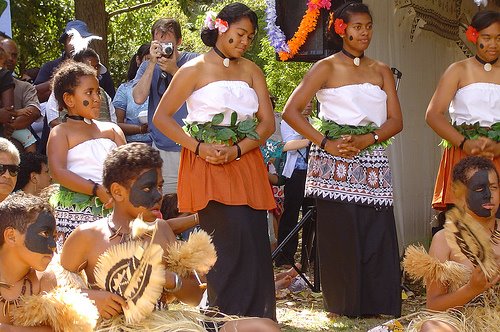 Since its establishment in 1992, the Fiji Performing Rights Association has been battling for the rights of musicians. It has been an up-hill battle in light of the rampant piracy here.
Since its establishment in 1992, the Fiji Performing Rights Association has been battling for the rights of musicians. It has been an up-hill battle in light of the rampant piracy here. The emergence of programmed music is of concern to the association, which feels it is stifling the creativity of artists and discouraging live sound. Among efforts to promote live music are competitions like the Young Mussos Acclaim and the Fiji Secondary Schools Original Song Competition scheduled for this month.
This week FIPRA chairman Eremasi Tamanisau spoke to ERNEST HEATLEY about the problems composers face and how they hoped to address them.
TIMES: Tell us about the primary work of FIPRA?
Tamanisau: Our core role is to license all users of copyright music, local and international, and to distribute the fees collected as royalty. It has taken quite a lot of awareness work by FIPRA because all businesses were initially reluctant to pay fees but our legal basis is the Copyright Act of 1999.
Times: How many businesses are paying fees to FIPRA?
Tamanisau: There are a number of them, including the Fiji Broadcasting Commission Ltd, Communications Fiji Ltd, World Harvest Centre along with television stations like Fiji Television and PBS. There are other revenue sources like Webmasters who distribute our music on the internet and companies like ANZ, FNPF and Colonial Bank who pay for using music on hold.
Fees are paid for downloads or mobile ring-tones We've signed a reciprocal agreement with the Australian Performing Rights Association to administer all international and local repertoire performed in Fiji. For example, the FBC pays us a certain percentage of its gross advertising revenue as a blanket fee every year.
Times: How concerned is your association about increasing piracy in the country?
Tamanisau: Unfortunately the breaching of copyright is rampant piracy. People are so confident in doing this because the enforcement by police is virtually non-existent. You can be fined $5000 per infringing copy and up to $50,000. A person can face 18 months imprisonment. It is a constitutional requirement for the police to enforce all laws and if they are failing in this, then they are failing in their constitutional duty. The question that comes to mind is whether to take the Commissioner of Police to task on this. It is depriving musicians and composers of a livelihood for their families.
Times: Why is FIPRA concerned about the effect of programmed music?
Tamanisau: There is one use for programmed music in that it reduces labour costs but when you go overboard and have everything done on a computer then that is worrying. A computer does not express emotions. It does not have any feelings. The one thing about it is that it is killing the restive talent of our young musicians. It's not really about going back to the good old days but more about marrying the two together. You can not ignore the progress in technology but at the same time, we do not want to take away the harmony in our music.
Times: Comparing the local music now to decades ago, how much of a difference has there been in terms of the availability of real live music?
Tamanisau: We used to have great live bands in the past at places like The Dragon and Lucky Eddies. There were acts like Ulysees, Sangfroid Ride, Mary Jane, Spinning Wheel. later on you had bands like Rootstrata and Exodus. These were great groups and live musicians. The great thing about live music is their feeling and emotion. There is a feeling of harmony in the music.
Times: Tell us more about the upcoming Fiji secondary Schools Original Song Competition through which you hope to encourage more live music?
Tamanisau: The inaugural event, won by Gospel High School, was held last year on December 1, but it had unfortunately coincided with the military takeover. This year the event is on November 16 at the Suva Civic Auditorium and so far we have had a lot of interest shown by schools from diverse locations like QVS, Sigatoka Methodist, Rishikul and Saint Joseph's Secondary. However, we will be choosing the best 10 schools to compete on that day and we are yet to go through the vetting process.
Times: What will be the criteria for selection?
Tamanisau: Each school will be allowed a maxim of two original songs.
It has to be an original song that has been composed by a student or a group of students and it has to be performed live by students. Only one group is allowed from each school. As a rule we are discouraging the use of cover tunes because this will work against our aim of encouraging originality among the participating students.
Times: What do you generally hope to achieve with this event?
Tamanisau: This is to encourage creativity and originality and to foster the development of live performances of singing and mastery of musical instruments. This even is to encourage students to know that music is a viable career path.
Adapted from Fijitimes.com November 8, 2007
